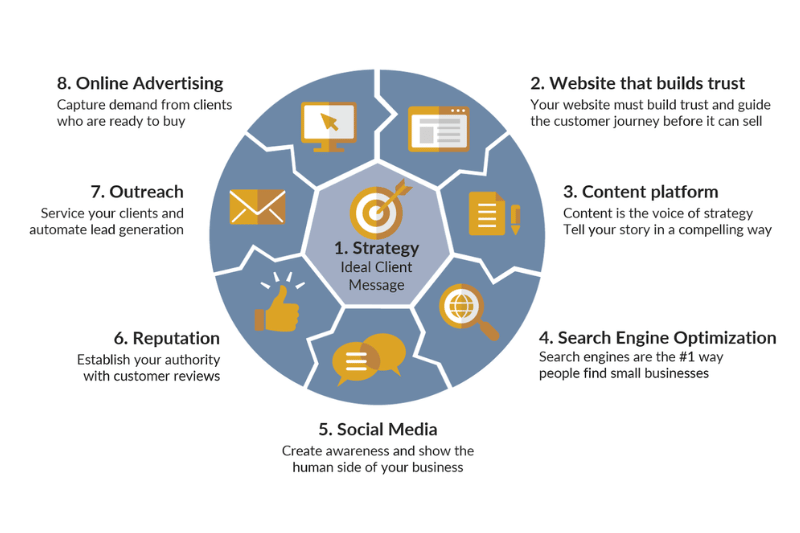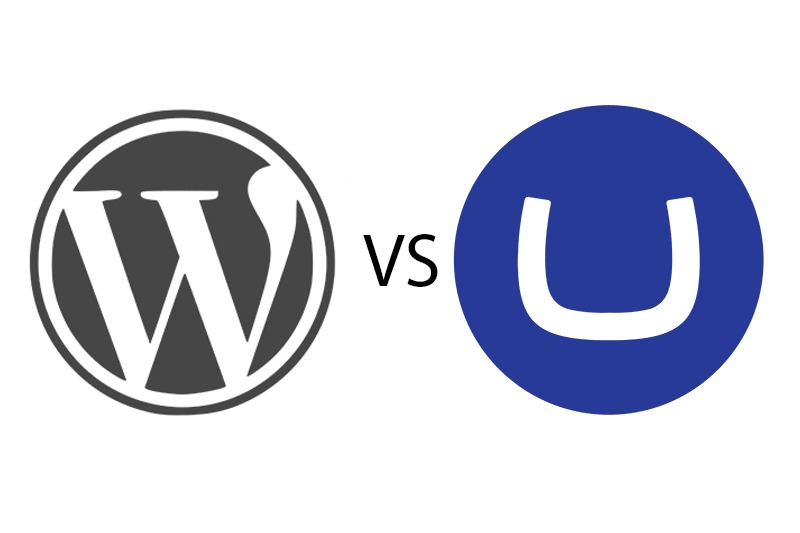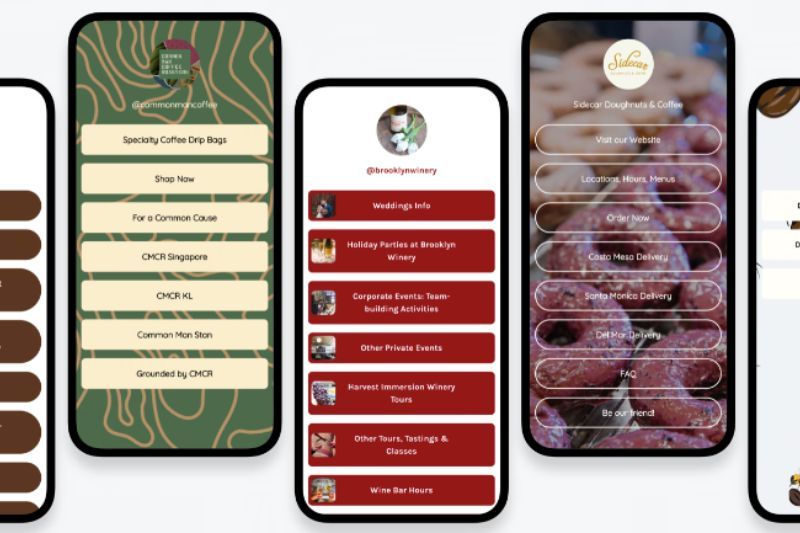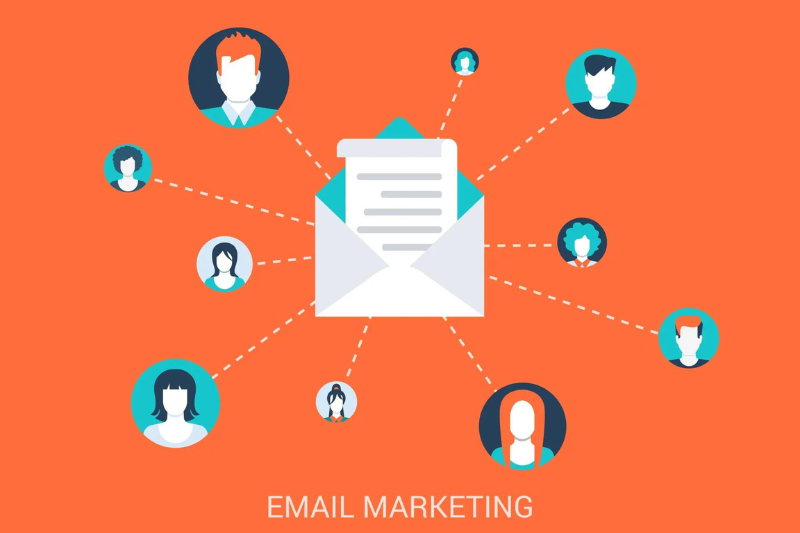How much content does your website need to be found online?
Imagine your website as a needle in the vast haystack of the internet. How would someone using Google or Bing find your website amongst the billions of other websites? It’s the content on your website that will get you found, not a great design. To be discovered, you need the right type of content on your website, and you’ll need to have enough of it.
So how much is enough? Get ready to explore the balance of quantity and quality that makes a website not just exist, but stand out online.
The objective of content marketing
At its essence, content marketing is a strategic approach to attracting, engaging, and retaining your audience by recognizing their needs, answering their questions, and guiding them at every step of their
customer journey.
What types of content do you need on your website, then? At the foundation, you'll have core content such as service and product pages to show what you do for your customers, as well as location and service area pages to show them where you will deliver your service.
Blogs, articles, and other resources supplement the core content and give your target audience the answers they need to the questions they have. In the process, you establish your company as a thought leader in your industry and boost your search engine rankings.
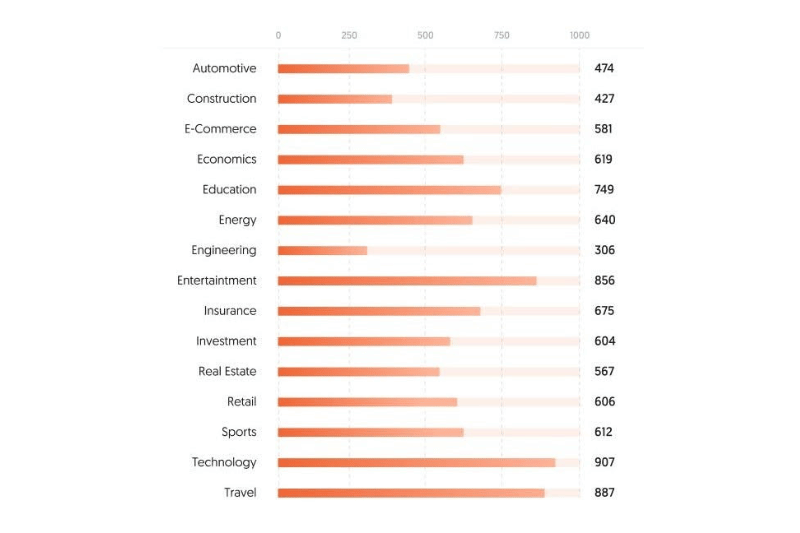
Core web pages
The most-visited page on your website will likely be the homepage. It should identify your target audience, the problem they are facing, how you solve that problem, and what differentiates you from the competition.
Product and service pages
Your product and/or service pages showcase the essence of what you offer. Create a separate web page for each individual product and service and describe it in sufficient detail to stand out. When a searcher browses the internet with a specific need, then your service or product page should stand out because it offers precisely what they're searching for.
Location pages and service area pages
B2B companies will generally offer their services in an area around a physical location. Your website should have a detailed location pages that correspond with the Google Business Profile of that location. Make sure these pages are interlinked seamlessly, and the information presented is a carbon copy of your Google Business Profile.
Service area pages
Service area pages cover the areas you are serving from each location, such as the areas in a city or the towns around your office. These pages give an overview of all the services and products you offer in that particular area. By infusing these pages with relevant local information your website will be in a much better position to attract "near me" searches.
Blogs and articles
About 7.5 million blog posts are written and published every day... As you can imagine it is almost impossible to create original content that hasn't been published before. However, the question is not whether you content is original, but whether you are establishing your company as a leading voice within your industry. You can confidently position your company or the business owner as the authoritative source in its field by portraying thought leadership and by diligently addressing the questions and problems of your target audience.
How long should blog post be?
Your blog's potential for impact can hinge on its word count. Research from Wordstream and HubSpot show that articles between 2,100 to 3,000 words are the most successful. People will engage with lengthy articles if they are relevant to their situation and answer their needs.
How blogs work together
A single long blog post will not make a big dent, but collectively your blog posts can play a pivotal role in your online presence. There are two ways in which you can make this happen:
- Achieving critical mass by having a sufficient number of high-quality blog posts.
- Creating a cohesive ecosystem of content centred around specific themes.
Critical mass from the total content on your website
The cumulative value of your website's content cannot be overstated. Case studies indicate that content marketing begins to truly thrive once you reach the 100,000-word mark on your website. With an average of 2,000 words per blog that's the equivalent of about 50 long-form posts. That's a lot of content, but with some dedication you will be able to produce 2 good quality blog posts per month and reach the objective in about two years.
Hub pages amplify your blog posts
Each individual blog post has value of its own, but making blog posts work together in harmony will amplify your overall message and expertise. The easiest way to do this is by creating hub pages on your website.
A Hub Page is like a directory of valuable content on a main topic, divided into specific subtopics, each with 5 to 8 articles. Together, they give a rich and comprehensive treatment of the main topic and deliver much more value to your audience.
There are many advantages of using hub pages in your content strategy:
- The structure of a hub page will help you organize your content and becomes a guide for content creation, listing the articles that need to be written over time.
- Hub pages improve navigation for your website visitors. All relevant articles on a particular topic they are interested in are logically grouped together.
- Your website SEO performance will improve with the implementation of a hub page. By properly linking all articles to each other you are creating a web presence where the sum is greater than the parts.
The use of AI to generate content
The exploding use of AI is a strong trend for 2024. Tools like ChatGPT are great for ideation and research. However, AI-generated content can be repetitive and generic and often fails to stand out.
For your web content to resonate with your target audience, it must be based on your knowledge and opinion, and maintain a consistent tone of voice. While AI can offer a starting point, the onus is on content creators to base pieces of content based on their personal or institutional knowledge, establishing your thought leadership and offering value to your target audience.
In Conclusion
If you want your company to be found online, then you need to generate and publish quality content in the form of core web pages and articles on your website. Each service and/or product and each physical location should have its own page. Individual web pages for each service area will improve your local findability in those areas.
Use long-form content to answer the problems and needs of your target audience, and organize the these in hub pages to amplify their impact. Aim for about 2,000 words on each topic, and keep working on them diligently. Once your website reaches about 100,000 words in total you will notice a growing impact online and an improvement in your search rankings.
Ultimately you'll want to reach and engage your target audience, and having sufficient content on your website that addresses their needs is what gets you there.
Do you have any questions on the above, or would you like to share your experience? Just email ideas@mawazo.ca or call +1 (833) 503-0807.
At Mawazo Marketing we work with owners of B2B companies who want to accelerate their business. We help them with a concrete digital growth plan, a website that saves operational cost, and a digital marketing system that generates leads. For qualifying clients we offer a 5x ROI guarantee: if we don't reach the objective, then we pay back the difference. Book a Free Strategy Session to find out more.
